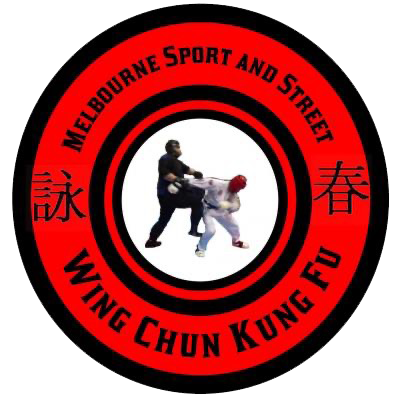The Role of Meditation in Wing Chun: Developing Focus, Calmness, and Mindfulness
By Maurice Novoa a master under the Yuen Kay Shan, Ip Man and Pan Nam lineages.
Introduction:
Wing Chun, a martial art known for its efficiency and practicality, encompasses not only physical techniques but also a deep understanding of the mind-body connection. One essential aspect of Wing Chun training is the incorporation of meditation. In this article, we will explore the importance of meditation in Wing Chun, the benefits it provides to practitioners, and how to integrate meditation into your Wing Chun practice.
The Importance of Meditation
Meditation plays a vital role in the practice of martial arts, including Wing Chun. It offers a range of benefits that enhance physical and mental performance.
Developing Focus and Concentration
Through regular meditation practice, practitioners can train their minds to focus and concentrate with greater clarity. In the fast-paced and dynamic nature of Wing Chun, having a sharp and undivided attention is crucial for executing techniques effectively.
Meditation allows practitioners to quiet the mind and filter out distractions. By directing their attention inward, they can develop an enhanced sense of focus that extends beyond their training sessions and into other aspects of life.
Cultivating Calmness and Emotional Control
In the midst of combat or training, maintaining a calm and composed state of mind is essential. Meditation helps practitioners develop emotional control by cultivating a sense of calmness and reducing stress. It enables them to respond to situations with clarity and make better decisions.
By practicing meditation, Wing Chun practitioners learn to observe their thoughts and emotions without judgment. This awareness allows them to detach from negative or distracting influences, fostering a calm and centered mindset that is conducive to effective training and execution of techniques.
Enhancing Mindfulness and Body Awareness
Meditation promotes mindfulness, which is the practice of being fully present in the moment. By cultivating mindfulness, Wing Chun practitioners can heighten their body awareness, noticing subtle changes in their movements and improving overall coordination and control.
During meditation, practitioners focus their attention on the sensations of the breath, the physical sensations within the body, or specific movements. This practice of mindfulness translates directly into Wing Chun training, where practitioners can apply heightened body awareness to improve their techniques and responses.
Incorporating Meditation
Incorporating meditation into Wing Chun training can be done in various ways, tailored to individual preferences and goals.
Breath Control and Centering Techniques
One common approach is to focus on breath control and centering techniques. By consciously regulating the breath, practitioners can calm the mind, center their energy, and develop a stronger connection between the mind and body.
During meditation, practitioners can focus on the natural rhythm of their breath, observing the inhalation and exhalation without trying to control it. This practice helps cultivate a sense of calmness and establishes a strong foundation for maintaining control and focus during Wing Chun training.
Visualization and Mental Training
Visualization is another powerful technique that can be used during meditation. Practitioners can mentally rehearse Wing Chun techniques, envisioning precise movements, and experiencing the desired outcome. This form of mental training can improve muscle memory and enhance overall performance.
By vividly imagining themselves executing techniques with precision, practitioners activate the same neural pathways as when physically practicing. This strengthens the mind-body connection and allows for more effective execution of techniques during actual training and combat situations.
Moving Meditation: Practicing Techniques with Mindfulness
In Wing Chun, practitioners can also engage in moving meditation. By performing techniques with complete mindfulness, paying attention to every detail of the movement, they can deepen their understanding of the art and refine their execution.
During moving meditation, practitioners focus their attention on the sensations, alignments, and dynamics of each technique. They practice with a sense of mindfulness, maintaining awareness of their body, breath, and surroundings. This practice allows for a deeper connection to the art and facilitates the refinement of techniques through heightened awareness.
Practical Tips for Meditating in Wing Chun
To incorporate meditation into your Wing Chun practice effectively, consider the following tips:
Creating a Peaceful Space for Meditation
Designate a quiet and peaceful space for your meditation practice. Eliminate distractions and create an environment that allows you to focus inward. Find a place where you feel comfortable and can establish a sense of tranquility.
Establishing a Regular Meditation Practice
Consistency is key in meditation. Set aside dedicated time each day to practice meditation, even if it’s just for a few minutes. Over time, gradually increase the duration of your sessions. Having a regular meditation practice helps develop discipline and allows for the cumulative benefits of meditation to unfold.
Starting with Short Sessions and Gradually Increasing
If you’re new to meditation, start with shorter sessions to build your endurance. Begin with five to ten minutes and gradually extend the duration as you become more comfortable. Remember, it’s more important to establish a consistent practice than to meditate for long periods right from the start.
Seeking Guidance from Experienced Practitioners
If possible, seek guidance from experienced Wing Chun practitioners or meditation instructors. They can provide valuable insights, techniques, and guidance to enhance your meditation practice within the context of Wing Chun. Their expertise can help you refine your meditation techniques and deepen your understanding of the mind-body connection in the context of martial arts.
Conclusion
Meditation plays a crucial role in the practice of Wing Chun, offering numerous benefits to practitioners. By incorporating meditation, Wing Chun enthusiasts can develop focus, cultivate calmness, and enhance mindfulness and body awareness. The integration of meditation techniques can deepen the understanding of Wing Chun’s mind-body connection and elevate overall performance.

